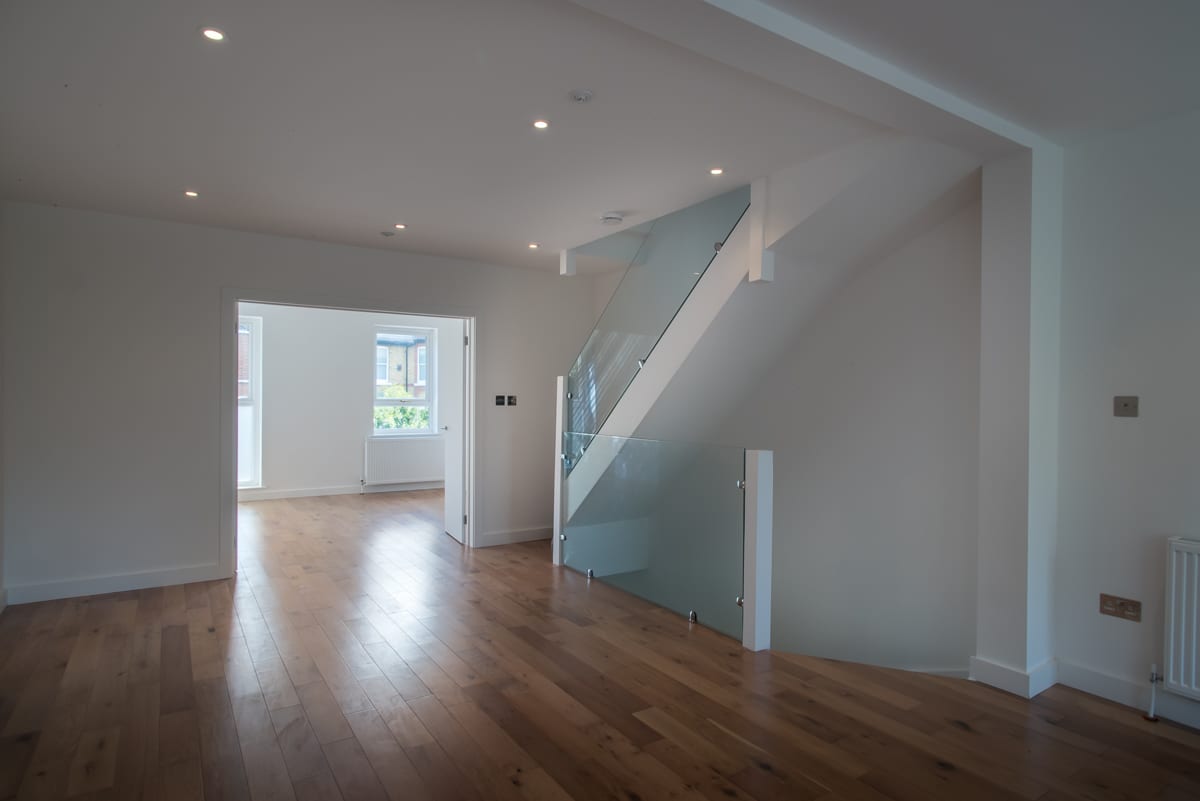Renovations can transform a property, adding beauty, functionality, and value. To keep your home looking as fresh and well-maintained as the day the renovation was completed, regular upkeep is essential. Here’s a guide from Red Box to help you maintain your newly renovated spaces, ensuring they continue to serve you beautifully for years to come.
1. Establish a Regular Cleaning Routine
- Surfaces and Fixtures: Regular dusting and cleaning of surfaces, countertops, and fixtures prevent buildup and protect materials from wear. For kitchens and bathrooms, use mild, non-abrasive cleaners to maintain finishes and avoid damage.
- Floors: Sweep and vacuum floors weekly to keep debris from scratching surfaces, especially in high-traffic areas. Use the recommended cleaning products for specific floor types like hardwood, tile, or laminate.
2. Protect Surfaces from Scratches and Stains
- Countertops: Use cutting boards and trivets on kitchen countertops to prevent scratching and heat damage. Wipe up spills immediately to prevent staining, particularly on natural stone surfaces like marble or granite.
- Furniture and Cabinets: Consider using felt pads under furniture to protect hardwood floors. In the kitchen, avoid slamming cabinet doors, which can loosen hinges over time.
3. Monitor and Maintain Paintwork
- Touch-Ups: Even with the most durable paint, high-traffic areas can get scuffed over time. Keep extra paint on hand for small touch-ups to keep walls looking fresh.
- Avoid Excess Moisture: In areas like bathrooms, proper ventilation is essential to prevent moisture damage. Use exhaust fans and wipe down walls if condensation occurs after showers.
4. Keep an Eye on Grout and Caulking
- Grout Maintenance: Grout can accumulate grime and mildew over time, especially in kitchens and bathrooms. Regularly clean grout lines with a mild cleaner and a soft brush, and consider sealing them periodically to maintain their appearance.
- Inspect Caulking: Caulk around sinks, tubs, and showers can wear out, creating gaps that allow moisture to seep in. Inspect these areas every few months and reapply caulk as needed to prevent water damage.
5. Check Plumbing and Drainage Regularly
- Faucets and Drains: Keep an eye on water flow and watch for slow drainage, which may indicate a clog forming. Avoid using harsh chemical drain cleaners, which can damage pipes. Instead, use natural solutions like baking soda and vinegar, or contact a professional for persistent issues.
- Prevent Leaks: After renovations, plumbing can occasionally shift due to building settling. Check for signs of leaks under sinks, around appliances, and along walls, addressing issues immediately to avoid costly repairs.
6. Maintain Windows and Doors
- Clean Windows Regularly: Keeping windows clean enhances natural light in your space and preserves their quality. Use a non-abrasive cleaner and soft cloth for best results.
- Lubricate Hinges and Locks: To keep doors and windows operating smoothly, periodically lubricate hinges and locks. This reduces wear and prevents squeaking or jamming over time.
7. Control Humidity Levels
- Prevent Dampness: High humidity can lead to mould and mildew growth, especially in newly renovated spaces. Use dehumidifiers in moisture-prone areas like basements and bathrooms, and ensure proper ventilation throughout the home.
- Protect Wood Surfaces: Wood flooring, furniture, and cabinetry are particularly sensitive to humidity. Keep indoor humidity between 30-50% to prevent wood from warping or cracking.
8. Regularly Inspect HVAC and Electrical Systems
- HVAC Maintenance: If your renovation included updated HVAC systems, regular maintenance is essential. Change filters regularly, schedule annual servicing, and clean vents to ensure efficient airflow.
- Check Electrical Outlets and Appliances: Make sure outlets are functioning correctly, and avoid overloading them. If new appliances were installed, follow the manufacturer’s maintenance guidelines to extend their lifespan.
9. Monitor Outdoor Renovations and Landscaping
- Exterior Paint and Finishes: For outdoor spaces, inspect exterior paint and finishes for signs of wear or weather damage. Touch up paint and reseal surfaces as necessary to prevent deterioration.
- Maintain Landscaping: If your renovation included landscaping, keep plants trimmed, ensure proper watering, and clear debris to prevent clogs in drainage systems.
10. Schedule Professional Inspections When Needed
- Structural Checkups: While routine maintenance can prevent many issues, a periodic inspection from a professional can catch small problems before they escalate. This is especially important for complex renovations involving electrical, plumbing, or structural work.
- Regular Service for Specialised Features: If your renovation included unique features like custom cabinetry, high-end appliances, or specialty flooring, consider hiring professionals for periodic maintenance to ensure they remain in top condition.
Long-Term Maintenance Tips
- Keep a Maintenance Calendar: To avoid forgetting important tasks, create a calendar with regular maintenance reminders for each aspect of your renovation.
- Save Manuals and Warranties: Keep all manuals, warranties, and documentation in one place for easy reference if issues arise or for future repairs.
Why Maintenance Matters
Regular upkeep of your renovated space preserves the beauty, functionality, and value of your investment. Simple, consistent maintenance habits can prevent costly repairs and keep your home feeling as new as the day your renovation was completed. At Red Box, we’re committed to not only creating beautiful, lasting renovations but also helping you maintain them with ease.
Ready for a renovation, or need advice on maintaining your space? Contact Red Box today, and let us help you keep your home in perfect condition for years to come.
